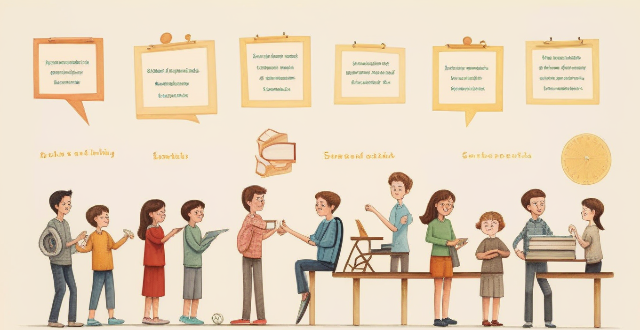Regular education teachers require specialized training to teach students with special education needs (SEN). This should include understanding of SEN, differentiated instruction, collaboration and communication, data collection and analysis, and cultural competency. By equipping teachers with these skills, we can create a more inclusive learning environment for all students.

What Training Should Regular Education Teachers Have to Effectively Teach Students with Special Education Needs?
Introduction
Teaching students with special education needs (SEN) requires a unique set of skills and knowledge. Regular education teachers should be equipped with the necessary training to effectively teach these students. In this article, we will discuss the essential training that regular education teachers should have to effectively teach students with SEN.
Key Competencies for Teachers
Understanding of SEN
Teachers should have a clear understanding of the different types of SEN, including learning disabilities, emotional and behavioral disorders, physical disabilities, and sensory impairments. They should also be aware of the legal rights and protections afforded to students with SEN under federal law.
Differentiated Instruction
Teachers should be trained in differentiated instruction, which involves adapting teaching methods to meet the diverse learning needs of students. This includes using multiple teaching strategies, providing individualized support, and modifying curriculum materials to accommodate different learning styles and abilities.
Collaboration and Communication
Effective collaboration and communication are crucial when working with students with SEN. Teachers should be trained in how to work collaboratively with special education teachers, paraprofessionals, and other professionals involved in the student's education. They should also be able to communicate effectively with parents and guardians about their child's progress and needs.
Data Collection and Analysis
Teachers should be trained in data collection and analysis to track student progress and identify areas where additional support may be needed. This includes using assessment tools such as rubrics, checklists, and observational records to gather information about student performance.
Cultural Competency
Teachers should be trained in cultural competency to ensure that they are sensitive to the diverse backgrounds and experiences of their students. This includes understanding how culture affects learning and behavior, as well as developing strategies to create an inclusive classroom environment that values diversity.
Conclusion
In conclusion, regular education teachers should receive specialized training to effectively teach students with SEN. This training should include understanding of SEN, differentiated instruction, collaboration and communication, data collection and analysis, and cultural competency. By equipping teachers with these skills and knowledge, we can create a more inclusive and supportive learning environment for all students.